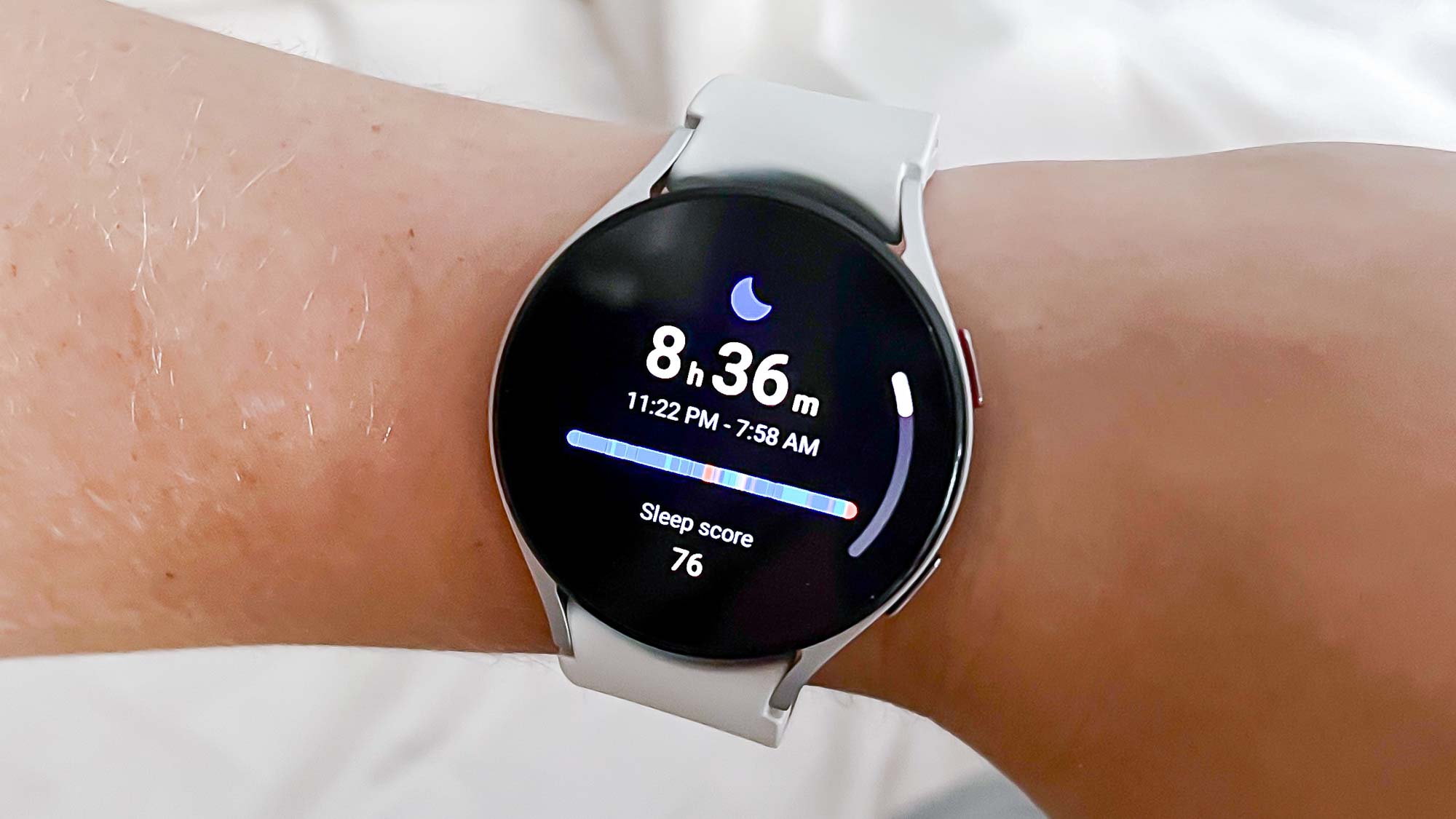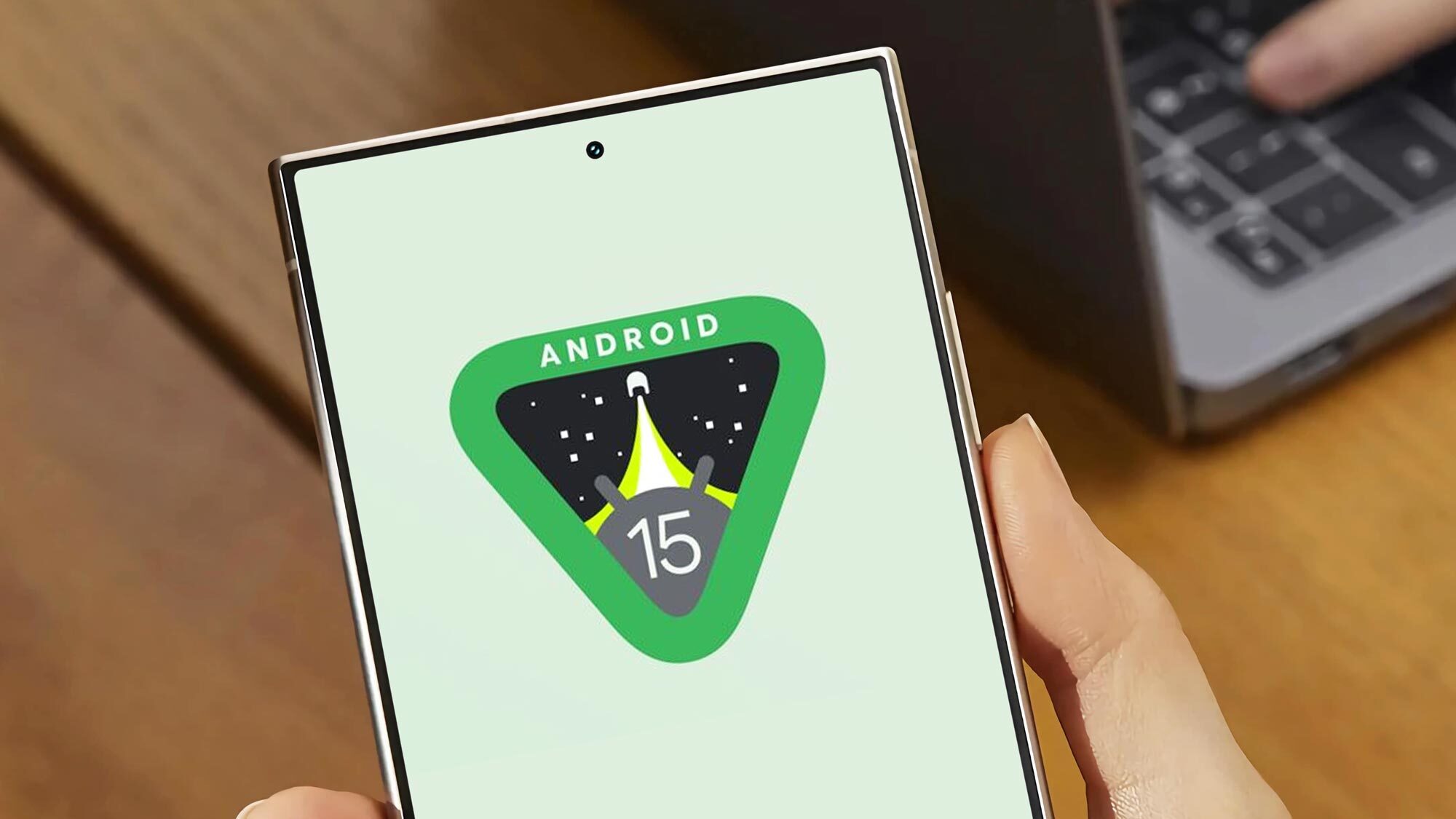Exclusive: Future Galaxy Watch could be the most intuitive sleep-tracking device yet
Samsung’s Head of Digital Health shares big ambitions for sleep-tracking

Imagine a smart home environment where your mattress temperature adjusts automatically, your bedroom blinds reveal sunlight at the optimal point in your circadian rhythm, and your other connected devices adapt to your behavior based on real-time sleep data from your smartwatch. This ambient hypothetical could become a reality with the help of a future Samsung watch.
While the Galaxy Watch 5 is currently among the best smartwatches you can use for health tracking, I wanted to learn about where the device stands (and how it can grow) in terms of sleep-tracking. I spoke with Dr. Hon Pak, Samsung’s Head of Digital Health to find out more.
In our conversation, Dr. Pak discussed the importance of reaching users with personalized sleep insights that offer more than just data and facts. He also alluded to what he’d like to see down the line for Samsung’s role in sleep tracking, plus what could be prioritized for upcoming Galaxy Watch models — perhaps including the rumored Galaxy Watch 6.
Editor’s Note: We've edited some of the responses for clarity and length.
What is the biggest misconception about sleep tracking devices?
Dr. Pak: Half of our Galaxy Watch users are tracking their sleep at least once a week, so they’re showing interest. About 40% of them are doing it three times a week, so clearly people are aware that sleep is an issue in their lives, and they’re seeking help. I think that the misperception could be that not as many users are aware of the longer-term effects of poor sleep. At nightime, during REM and other stages of sleep, cellular repair occurs. The correlation between poor sleep and cardiovascular disease are fairly well known, but perhaps not as appreciated.
What mistakes are tech companies making with how they're communicating sleep tracking features to their customers?
We’re all learning, and it goes beyond sleep. Doing the “right” thing in terms of wellness is harder than doing the easier thing. Because of that, we have to make it easier for our users to do the right thing. It’s insufficient to just give them data, users need something that’s personal to them.
Until recently, we have not personalized it enough, and we’ve struggled to understand how behavior change occurs. It’s the art of incorporating behavioral science into how we engage with users, knowing their needs are different. For example, we have developed sleep coaching for the sleep-tracking feature by working with healthcare professionals and the National Sleep Foundation to create a sleep coaching program.
Were there any challenges with developing personalized sleep insights for Galaxy Watch?
This is a journey. Just because we know science and facts, it doesn’t always translate into someone reading it and engaging. What we’ve come to realize is that we need refining of content in a way that is more emotionally engaging for the user. I can give you an amazing amount of facts about your sleep, but users really don’t know how to consume them, nor do they emotionally attach to them. You have to make it digestible, you have to make it meaningful. No amount of facts wins over hearts.
Of users who are already engaging with personalized sleep tracking insights on their Galaxy Watch, what have already heard about their experience?
The users really liked the detailed sleep insights which include sleep patterns, sleep types defined by sleep animal symbols, and additional tips and guidance on the results. Meanwhile, there was feedback from some that they didn't fully understand what the results meant. That's why we introduced the new Sleep Insights UI on One UI 5 Watch to show the quality of the last night's sleep more intuitively. We will continue to provide deeper and more personalized insights on the upcoming Galaxy Watch.
Is there something that you’d like to see materialize for sleep-tracking on the Galaxy Watch?
We are working towards a state where ambient sensing along with wearables will help personal sleep in a very specific way, and help monitor one’s sleep in such a way that would help sleep quality much more significantly. For example, I see the temperature being controlled by an algorithm on a smart mattress using data from wearables.
Already, SmartThings allows us to address the issue of ambience, and the environment around sleep. But ideally these devices connected to SmartThings would use ambient sensing in your environment to then help personalize your sleep and adjust automatically.
So, it’s about finding changes that can be made in real-time, automatically, based on how someone is sleeping according to their smartwatch?
It’s more than that. Individually, connected smart devices work at a recreational level but what if we take the insight from each one and personalize it in relation to each device? That way the sleep experience is a lot more personalized based on other data sets that were not possible before.
Are you able to tell me anything about what the next Galaxy Watch could bring in terms of sleep-tracking?
I can tell you, generally speaking, if you look at the top three causes for poor sleep, we’re working on those. We’re bullish, we believe that sleep is foundational. The implication of sleep and nutrition, sleep and stress, and sleep and cardiovascular disease. How do we bring those integrated insights in a way that helps people to understand their personal goals, and then begin to help them? That’s the vision.
More from Tom's Guide
- Wear OS 4 confirmed — the biggest upgrades coming to your Android watch
- How to track sleep on your Fitbit
- Samsung Galaxy Watch 6 with rotating bezel revealed in leaked render
Sign up to get the BEST of Tom's Guide direct to your inbox.
Get instant access to breaking news, the hottest reviews, great deals and helpful tips.
Kate Kozuch is the managing editor of social and video at Tom’s Guide. She writes about smartwatches, TVs, audio devices, and some cooking appliances, too. Kate appears on Fox News to talk tech trends and runs the Tom's Guide TikTok account, which you should be following if you don't already. When she’s not filming tech videos, you can find her taking up a new sport, mastering the NYT Crossword or channeling her inner celebrity chef.

